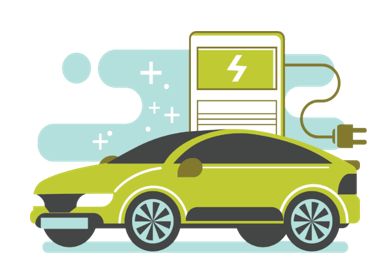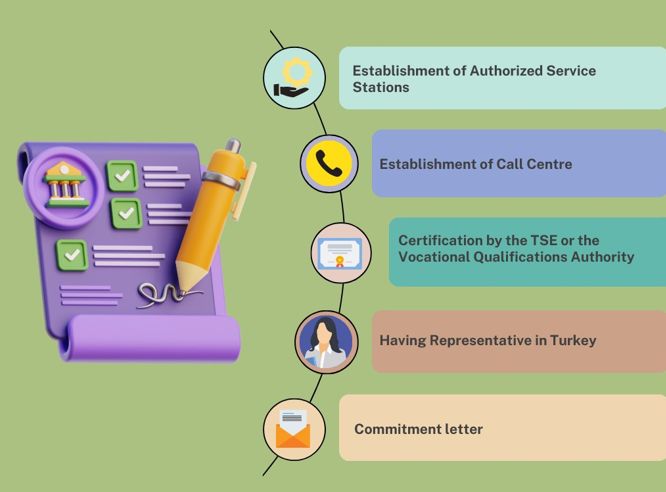KW: automotive, vehicle, EVs, electric vehicles, BEVs, Regulation, Import, Turkey, Turkish, Türkiye, 2023/22, 2024/22, WTO, GATT, TBT, TSE, standards, Ministry of Trade, Ministry of Industry, customs, international trade, China, Japan, TOGG
The automotive industry is experiencing a seismic shift with the rise of electric vehicles (EVs). The global landscape is rapidly evolving towards sustainable mobility solutions as manufacturers are investing in the development of alternative fuels such as electric or hydrogen. Led by the EU's and US's ambitious net zero targets, governments around the world are prioritising decarbonisation efforts to combat climate change1.
With a high level of vehicle consumption, Turkey is at the forefront of this transition. Aiming to establish a functioning EV ecosystem, Turkey needs to improve its infrastructure and regulatory framework in line with international trends. Amidst this momentum, Turkey has emerged as one of Europe's top 10 EV markets, experiencing a surge in EV adoption. The share of EVs in the total car market was 16.3 percent in Europe as of the end of November, while it was 7.1 percent in Türkiye2. Although there is a significant increase in the presence of EVs in the market, it is obvious that there is still a gap to be bridged with Europe and there still is a long way to go.
However, recent regulatory developments have stirred some turbulence in the sector, casting a shadow over its growth path.
In December 2023, Turkey introduced a new set of rules for importers of EVs with the Regulation on Import of Certain Electric Vehicles (Import: 2024/22)3 ("Regulation"). The Regulation introduced comprehensive obligations for importing electric vehicles.
Below, we break down the new rules and take a closer look into the legal implications of these requirements.

What does the Regulation bring?
The Regulation brings a set of additional requirements for automotive companies wishing to import EVs into Turkey. EVs originated in the EU and in the countries that have a Free Trade Agreement ("FTA") with Turkey are exempted from the additional requirements.
The Regulation requires an "Authorisation Certificate" issued by the Ministry of Industry and Technology or an institution authorised by the Ministry. For this Authorisation Certificate to be issued, the Regulation requires that:
- Establishment of Authorized Service Stations: Automotive companies need to establish their own (not contracted)> after sale service (at least 20 stations in 7 geographic regions). These stations must comply with Turkish Standards Institute (TSE) standards.
- Establishment of Call Centre: Automotive companies are obliged to set up a call centre where at least 40 Turkish speaking staff employed. Unlike the service station requirement, the wording regarding the call centre doesn't explicitly prohibit outsourcing or subcontracting.
- Certification by the TSE or the Vocational Qualifications Authority: Persons working in the field of EV sales and provide after-sales services (repair-maintenance) must have a qualification certificate issued exclusively by the TSE or the Vocational Qualifications Authority
- Having Representative in Turkey: The manufacturer of the imported EVs must have an authorised representative seated in Turkey.
- Commitment letter: It is mandatory to give a commitment letter stating that importer accepts the proceedings required for tracing, controlling, and inspecting battery systems.

The Regulation does not foresee any grace period for the fulfilment of those obligations and stipulates that the Regulation will enter into force as of Jan 1, 2024. Accordingly, the new rules pose a great challenge for existing players in the market while deterring new EV brands looking to invest in Turkey.
Assessment of the Regulation
The restrictions imposed on the import of EVs raise a multitude of legal challenges. Accordingly, we should evaluate the Regulation from the perspectives of; the rules-based WTO system, and the Consumer Law and the Competition Law. At the backbone of these assessments, we should also consider the Regulation's compliance with the fundamental principles of law, including freedom of enterprise and legal security.
Regulation within the scope of the Consumer Law
The authorized service stations are regulated by the Consumer Protection Act and Regulation on After-Sales Services, which came into effect in accordance with the explicit reference in the Consumer Protection Act.
According to Consumer Protection Act, importers are allowed to either establish their own service stations or obtain services from others through contracts. In other words, importers can simply sign an agreement with an already established service station as an authorized service.
It is also regulated in the Consumer Protection Act that the minimum number of service stations to be established in terms of after-sales services and other implementation principles shall be set by a regulation.
The Regulation, in contradiction with the Consumer Protection Act, requires the importer to establish its own service network. It may be also argued that the fact that this issue is regulated by the Regulation and not by the regulation is in contradiction with the Consumer Protection Act.
Regulation within the scope of the Competitive Environment in the EV market
Regulation is likely to deprive both companies and consumers of the advantages of product diversity and competitiveness leading to a reduction in economic efficiency.
It can be argued that the Regulation, in its current form, discriminates between firms from the Europe and FTA countries and the rest without any objective justification.
In fact, it can be argued that the Regulation creates an asymmetric and anti-competitive structure between competing firms. As such, the Regulation may systematically disrupt the levelled playing field.
Additionally, it may be considered that the Regulation has the potential to disrupt the future development of the electric vehicle market in Turkey. This may lead to a decrease in the number of players in the emerging electric vehicle market and may harm the competitive structure in the market. Depriving consumers of the freedom of choice, the new rules may also have a negative impact on consumer welfare.
Regulation within the scope of the WTO Rules
Turkey has been a member of thew WTO since 26 March 1995 and a member of the General Agreement on Tariffs and Trade ("GATT") since 17 October 1951.
One of the main reasons for the existence of the WTO is to ensure that its members do not put each other at a trade disadvantage. The WTO aims to ensure a fair and level playing field for all participants of the international markets. To enable the free trade of goods and services, the WTO has formed a rules-based multi-lateral trading system, which places a high importance on trade without discrimination. Indeed, under the WTO agreements, countries cannot normally discriminate between their trading partners. This principle is known as most-favoured-nation ("MFN") treatment.
By a similar token, the national treatment principle is recognized in all three of the main WTO agreements (Article 3 of GATT, Article 17 of GATS and Article 3 of TRIPS). This principal aims to establish neutral treatment for imports and stipulates that imports and locally produced goods shall be subject to an equal principle.
One may argue that the Regulation creates an unfair playing field between imported EVs and locally produced EVs. It can also be argued that the Regulation also creates an unfair playing field between imported EVs based on the country of country of origin. As a matter of fact, it is also considered that the Regulation follows the aim of protecting and developing Turkish local production projects such as TOGG. Even if this purpose is deemed to be beneficial, it can be assessed that the Regulation may lead to a loss of welfare both in the electric vehicle and automobile industry and in the eyes of consumers, beyond the benefit provided to them.
On another note, the WTO rules also prohibit member states from imposing technical barriers that create disadvantage on imported products. Considering that the Regulation brings a set of hefty requirements on certain imported EVs, it is also subject to a further assessment whether these constitute the violation of the WTO rules concerning technical barriers to trade.
Conclusion
Implications of the Regulation extend beyond domestic borders, potentially impacting trade relations and the competitive landscape. Hence, policymakers should conduct a thorough regulatory gap analysis for the Regulation's provisions and their alignment with international standards to ensure a fair and conducive environment for the development of the electric vehicle market in Turkey.
In a broader context, the journey towards sustainable mobility requires a delicate balance between regulatory frameworks, industry innovation, and consumer interests. While the intentions behind the Regulation may be to foster local development and quality standards, its implementation and impact necessitate scrutiny and potential revisions. Turkey's aspiration to become a prominent player in the EV market requires collaborative efforts between government and industry stakeholders to navigate regulatory complexities while fostering innovation and competition. Striking this balance is key to Turkey's EV success, ensuring international compliance and building a thriving, competitive automotive sector for a greener future.
Moreover, it should also be noted that Turkey, with a significantly lower number of EVs per capita, may lose the opportunity to bridge this gap during the transition to electric vehicles. In addition, as it is known, Chinese manufacturers have obtained know-how from Western automotive manufacturers investing in them through local production. The Regulation has closed the way for a similar transfer of such know-how through Chinese automobile investments to be made in Turkey.
It can further be said that the Ministry of Industry's trip to China to evaluate joint production opportunities after the issuance of the Regulation in question has no meaning for EVs, which is one of the areas where co-operation can be seen the most.
Footnotes
1. KÖKSAL, E., ARDIYOK, Ş., & İKİLER, B. (2024). How does charging infrastructure for electric vehicles become widespread in Türkiye? (Türkiye'de Elektrikli Araçlar için Şarj Altyapısı Nasıl Yaygınlaşır?), Ekonomi-Tek, 13(1), 84-121. https://dergipark.org.tr/tr/pub/ekonomitek/issue/83200/1433384
2. https://www.hurriyetdailynews.com/turkiye-among-europes-top-10-ev-markets-189008
3. Published in Official Gazette dated November 31.12.2023. The Regulation introduced comprehensive obligations for importing electric vehicles and provided only 30-day grace period. However, while the sector stakeholders were grappling with compliance efforts, another surprise emerged. On the last day of 2023, Regulation No. 2023/22 was abolished with the Regulation on Import of Certain Electric Vehicles (Import: 2024/22). In essence, both the Regulation and the Abolished Regulation bring similar sets of requirements on the EV importers.
The content of this article is intended to provide a general guide to the subject matter. Specialist advice should be sought about your specific circumstances.



